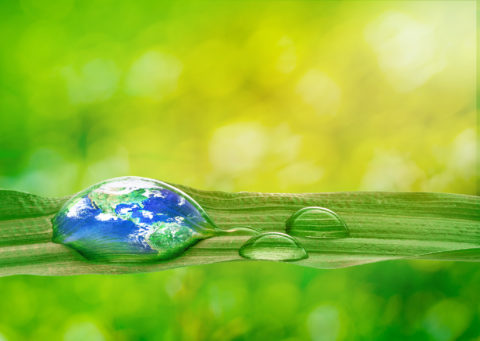
What will you do in your yard and garden this season to help the earth?
Earth Day is this Sunday, April 22. We hope you use the occasion to both celebrate steps you are already taking to help the planet and consider what else you could do.
Here are a few suggestions for things you can do to help the earth in your own yard and garden.
Plant a tree
Trees help the earth in numerous ways:
- Trees store CO2, which helps with climate change by reducing the amount of CO2 in the atmosphere.
- They reduce energy use by keeping your house cooler in summer.
- They clean the air, reduce runoff and filter rainwater.
- They attract birds and wildlife.
- They make your yard and neighborhood more beautiful.
There are many tree species that grow to the right size for an urban or suburban yard. Ask for ideas at your local independent nursery.
Switch to a battery-powered lawn mower
Gasoline-powered lawn and garden equipment emit harmful air pollutants. Rechargeable battery-powered mowers help make the air cleaner and your neighborhood quieter.
Attract good bugs
We have all read about the loss of pollinators like bees and butterflies. The best way to attract pollinators is to grow flowers that produce nectar. Here are a few lists of flowers that attract pollinators. Find out more about pollinators from the Xerces Society and the Pollinator Partnership.
Other good bugs, such as lady beetles and green lacewing, will help keep aphids in check. They are attracted to plants that produce nectar.
There are also beneficial insects that live in the ground, such as ground beetles, rove beetles and centipedes. They eat other garden pests. Low-till gardening practices will help them survive.
Read more about specific beneficial insects and how to attract them in the ‘Good Bug’ photo guide.
Attract birds and other wildlife
Birds and wildlife are losing critical habitat, such as forests and grasslands, to development. To attract them to your yard, you need to provide food, water and shelter.
Food: Most birds prefer to eat insects. Nectar-producing plants attract beneficial insects, which provide food for birds.
Water: Provide a pond, birdbath or other source of water. Keep plants near the water pruned so cats can’t hide nearby and attack birds.
Shelter: Plant a wide array of shrubs and trees to provide places for refuge and nesting. Leave dead branches and dead trees as perches.
Consider becoming a Backyard Wildlife Sanctuary.
Reduce or eliminate pesticide use
“Pesticides” include insecticides, herbicides, fungicides and similar products. When they run off residential landscapes, they contaminate our streams and lakes. Even low levels of pesticides can harm aquatic life like fish, frogs and insects.
Help the earth by choosing native plants or plants that will grow well in our climate. And keep plants healthy with the right amount of water and organic fertilizers. Healthy plants will be less susceptible to insects and diseases, so you won’t be tempted to use pesticides.
Here are some native plant resources. And Great Plant Picks has extensive lists of plants that will thrive in the maritime Northwest.
Grow a thick, healthy lawn that can outcompete weeds. And don’t expect to grow a perfect lawn with absolutely no weeds. Check out our YouTube playlist on natural lawn care.
Protect water quality
Mulch garden beds to reduce runoff, feed the soil and reduce irrigation needs in the hot summer. Here is some information from a local nursery about how to use mulch and our video about choosing and using mulch.
Reduce runoff with a rain garden, cistern or permeable pavers. You may even get a rebate on installation.
Turn part of your lawn into garden beds. The soft soil and mulch in garden beds absorb water better than do lawns.
Choose organic or slow-release fertilizers, which feed plants slowly over time. They are less likely to run off into nearby streams and lakes and harm water quality.
Reduce unnecessary water use. Choose drought-tolerant plants, and group plants with similar watering needs together. Find out more about choosing the right plants. And check out this plant list.
Use efficient irrigation methods such as water timers and drip irrigation. Find out about better ways to water on our YouTube playlist on watering.
Enjoy nature
Spend time outside appreciating nature. Share outdoor experiences with your children and friends. It may motivate them to help the earth.
Enjoying nature in the garden helps reduce the stress of daily living. It also helps us remember why our planet is worth protecting.
